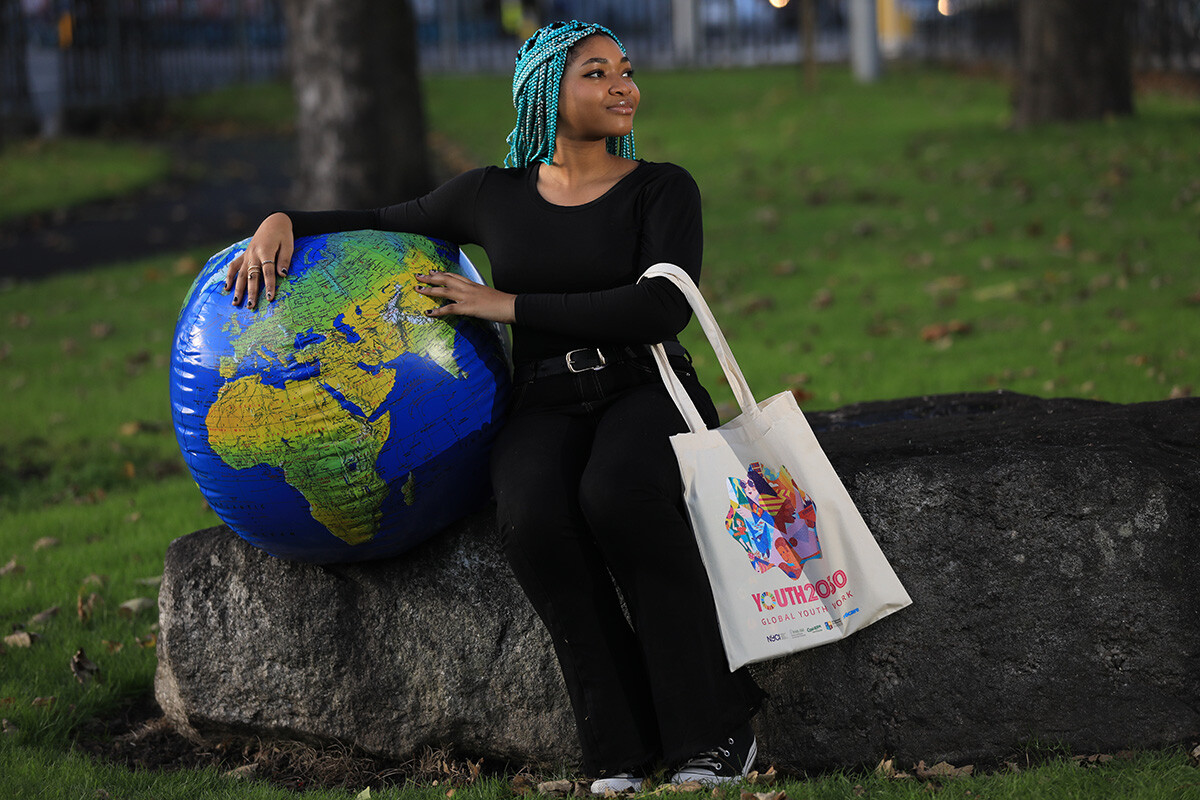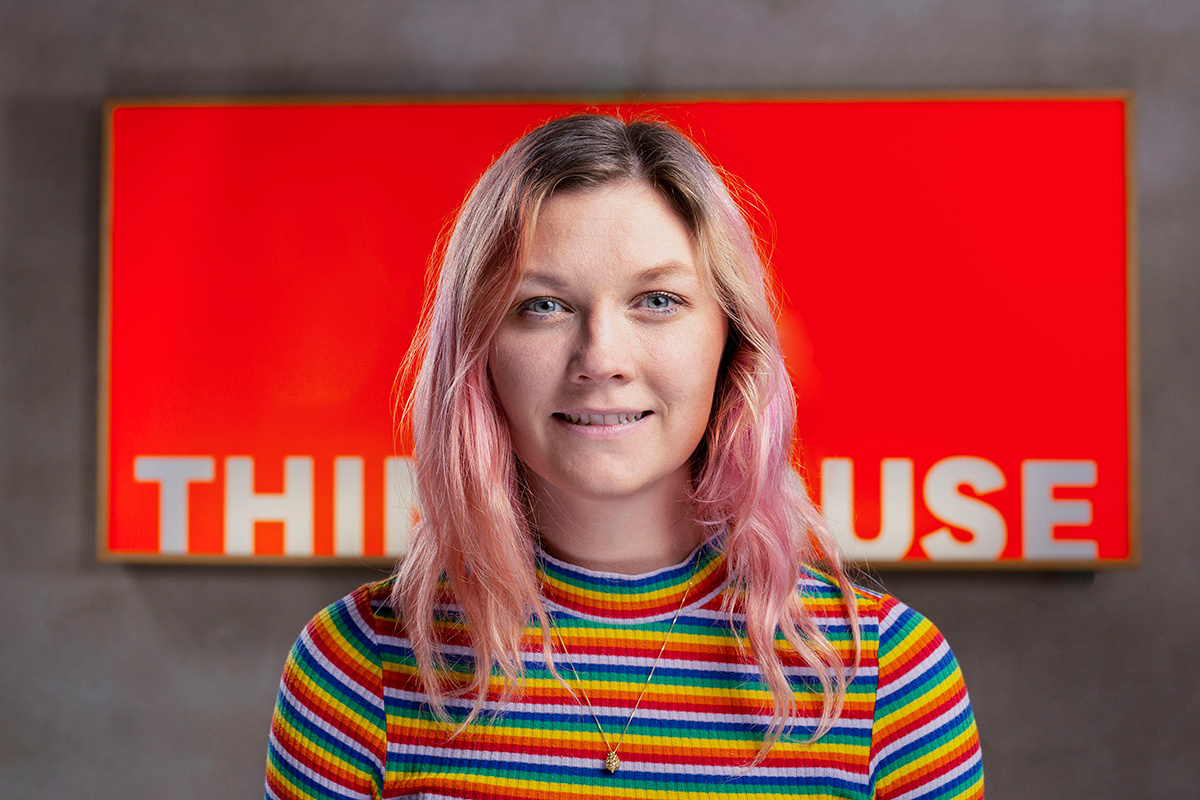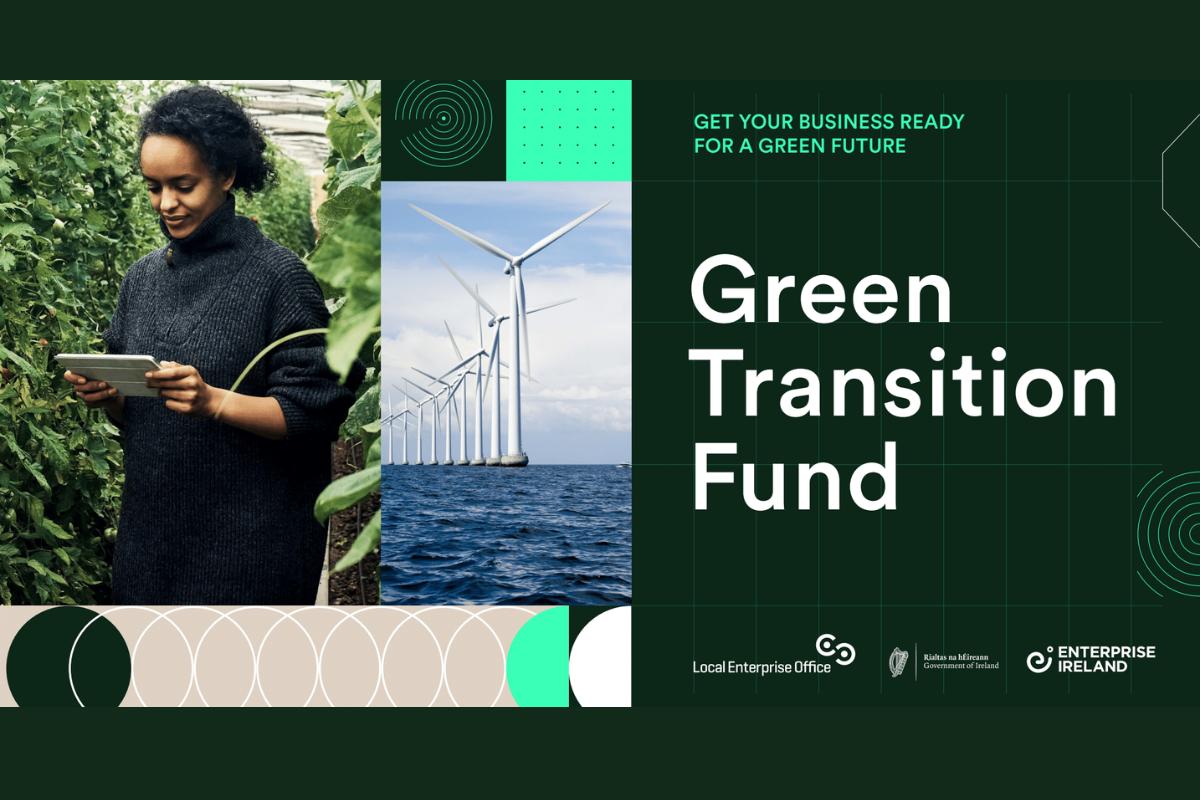Youths forging the way for eco-friendly businesses
As the arrival of June nudges us into Irish Summer, we celebrate World Environment Day, the annual UN vehicle driving positive Environmental action.
6 min read
Govinda Geoghegen : Jul 15, 2023 10:00:58 AM


World Youth Skills Day falls on the 15th of July 2023, to mark the day and in support, CGBC invited Eimear Manning, Youth & Climate Justice Development Officer for the National Youth Council of Ireland to talk to us about their turnkey Future Generations Climate Justice Project and why the youth of Ireland are the guardians of the future.
World Youth Skills Day, which falls today, aims to raise awareness of the importance of youth skills development through Technical & Vocational education and training (TVET) and how necessary it is to equip young people with the requisite skills to gain employment, explore entrepreneurship and achieve their dream job. The theme of WYSD ’23 is “Skilling teachers, trainers and youth for a transformative future”.
Each year on WYSD, the UN plays host to a full itinerary of events aimed at bringing young people from all backgrounds and with ambitions in full spectrum careers together to discuss their lived experiences of skills training, and the part it played in helping them to move onto their chosen career pathway. Similar events and educational hubs are also available to young people across Ireland, with the likes of the National Library of Ireland and the National Youth Council of Ireland, as well as the Irish Government, offering free online educational resources and skills development initiatives, hosting online and in person events and sharing stories of young graduates and workers.

The National Youth Council of Ireland plays an integral part in raising awareness amongst younger generations of the importance of getting the requisite training to get a foot on the employment ladder. NYCI has been working closely with educational and training institutions as well as Irish businesses to cultivate youth skills in Ireland, rolling-out initiatives to generate opportunities for up-skilling through youth work placements.

CGBC invited Eimear Manning, Youth & Climate Justice Development Officer for the National Youth Council of Ireland to talk to us about their Future Generations Climate Justice Project and their call to action to enable young people to combine skills learning and development with championing the fight for Climate Justice. To kick-off the conversation, we asked Eimear to give us some background to the Future Generations Climate Justice Project, its partners, and what it hopes to accomplish.

The Future Generations Climate Justice Project is a partnership project funded mainly through the Youth Climate Justice Fund, an initiative launched by the Department of Children, Equality, Disability, Integration and Youth, with additional funding from Irish Aid and 1Planet4All.
NYCI co-ordinates the project, acting as the central point of contact. Offering different areas of expertise, the various members of the consortium also help attract cohorts of young people to the project. For example, Sphere17 Regional Youth Services works with young people from predominantly economically disadvantaged Dublin suburbs, while YMCA Ireland attracts youngsters from more rural areas from West Cork to Northern Ireland. Then there’s Gaisce, which works in tandem with schools and youngsters still in the education system.
Finally, Concern Worldwide brings additional funding through its EU-funded 1Planet4All programme. It is also a serious catalyst for opening up international dialogue, bringing young people from across the island of Ireland into conversation with youth communities from the Global South *.
* The Global South comprises those nations, predominantly situated in the southern hemisphere, which are economically, socially and industrially disadvantaged and/or behind the rest of the “developed world”, ie Africa, Latin America, the Caribbean, and parts of Asia & Oce
Explaining the goals of the Climate Just Project, Eimear told us:
“The project seeks to explore and highlight the systemic and human rights issues related to the climate crisis."
"Climate Change affects people differently, depending on a variety of different factors, such as geographical location, gender, class, race, age, and level of education while Climate Justice recognises that those who are least responsible for climate change, suffer its gravest consequences."
"NYCI brings the often missing unique voices of young people to the climate discourse, especially those youngsters from marginalised, rural or disadvantaged backgrounds, something which we feel is vitally important as their reality is often not represented in national and global policies.”
"Our project specifically addresses this by:"

Eimear Manning
National Youth Council of Ireland
It is a fact now widely recognised that young people are not just the future of this beautiful planet of ours, but of generations to come. So to what extent are Irish youth engaging with climate issues? Is it all just lip service or are they actually walking the talk?
Eimear says...
“Young people are absolutely committed. They are really at the forefront of the climate crisis movement., and are by far the largest, most active and most vocal cohort on the urgent need for systemic change. In fact, research has shown that the top two concerns that young people are facing today are ‘Climate Change’ and ‘Environmental Degradation’."
“Some might wonder why young people are so concerned about the climate crisis, and the answer is that it is their future that is at risk. They have every reason to be invested."
"These current young generations as well as those yet to be born, will have to suffer through climate and environmental-related threats for much longer than any adult alive today. But while young people are victims of the failure of previous generations, they are also agents of meaningful change. We have the largest and most educated generation of youth than ever before, alive on the planet today, and collectively they hold massive power to achieve climate action and hold policymakers accountable for their inaction."

Eimear Manning
National Youth Council of Ireland
In the week the UN told us that Climate Change is now out of control, we asked Eimear which tools best support the promotion of Climate Justice.
“Everyone is talking about Carbon Footprint for example, but we need to be careful with that concept, as it can be a distraction from tackling the real systemic issues of the climate crisis. The reality is that large industrial fossil fuel companies (and our forced reliance on them) are mostly to blame for the climate crisis. While focusing on our individual divestment from these companies can bring us internal contentment through knowing that we are doing a good deed, it ultimately won’t stop the climate crisis. Large-scale change must happen systemically, across every facet of society. We cannot ignore the looming necessity of holistic change. This is one of the reasons why I am against looking at carbon footprints for individuals, as there are much more pressing areas that should be the centre of our focus."

Eimear Manning
National Youth Council of Ireland
But what about carbon footprinting on a bigger scale?
“Carbon footprinting can be a useful tool when looking at the bigger picture, for sure. Compare the carbon footprint of an average of airline company to land-based transport, such as rail for example, and it will demonstrate that the aviation industry pumps significantly more greenhouse gas (GHG) emissions into our atmosphere,” explains Eimear, before going on to add, “We can also assess carbon footprints of countries. By looking at available emissions data, we know that Ireland is one of the countries with the highest per capita GHG emissions in the world, meaning that the average person in Ireland accounts for more GHG emissions than those in most other EU countries.”
“It’s important to note,” she stresses, “that with this information, making individualistic changes to reduce the per capita GHG emissions of Ireland will not be successful in a large enough scale unless Irish people are able to avail of more environmentally-friendly services and products. The Irish government, therefore, needs to invest more in alternative, renewable energies and materials that can replace their non-renewable counterparts. Thus, the emphasis of carbon footprinting should remain systemic and looking at the bigger picture, rather than blaming individuals whose smaller changes won’t add up to much in the grand scheme of things.”

Eimear Manning
National Youth Council of Ireland
And while most of us make decisions that we know are better for the planet, such as buying keep cups and recycling our waste, as individuals and a nation we need to do more.
“I use my clothes to the end of their life and have learned to repair clothing; I use public transport wherever available; etc. Doing those smaller things is still wonderful, and the more people who make those decisions – the better,”

Eimear Manning
National Youth Council of Ireland
...enthuses Eimear.
However, she also points out that we need to take actions that count, such as getting involved in dialogues with policymakers and continuing to fight for larger, meaningful change.
Eimear finishes off by telling us that simply listening to young people’s concerns can negate the ill-effects of eco-anxiety, which is why it’s so important to give them a platform.
For more information on World Youth Skills Day go to the UN website on https://www.un.org/en/observances/world-youth-skills-day
For further information on the NYCI, the Future Generations Climate Justice Project and how you and your kids might get involved, log on to
https://www.youth.ie/articles/happy-world-youth-skills-day-from-nyci/
The NYCI offers various resources in support of World Youth Skills Day including its Skills Summary Hub - to check out same and watch the video, click onto

As the arrival of June nudges us into Irish Summer, we celebrate World Environment Day, the annual UN vehicle driving positive Environmental action.

A major review of climate change science says that while the world is likely to pass a dangerous temperature threshold in the next decade, the worst...